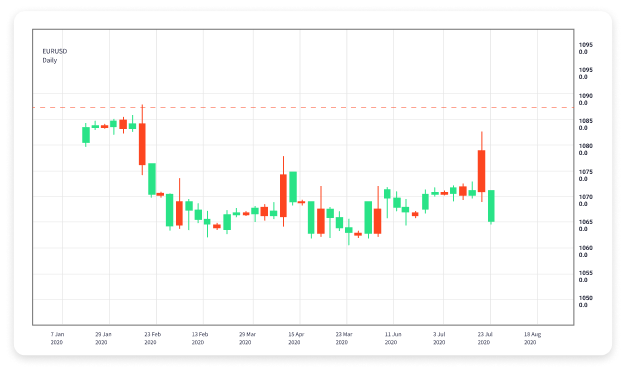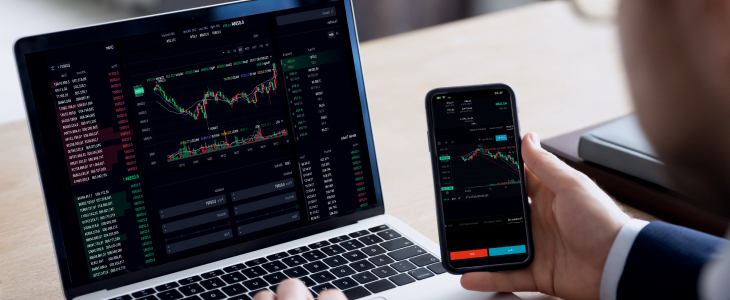
A Beginner’s Guide to Forex Trading for Dummies
Are you interested in learning about forex trading but don’t know where to start? You’re not alone! Many individuals are curious about the world of forex trading due to its potential for profit and accessibility. In this guide, we’ll break down the essential concepts of forex trading into easy-to-understand terms. You’ll learn about the forex market, how to trade currencies, basic strategies, and tips for beginners on their journey. For those looking for reliable resources and partners in this industry, you can refer to forex trading for dummies Best Uzbek Brokers.
What is Forex Trading?
Forex trading, also known as foreign exchange trading or currency trading, involves buying and selling currency pairs in the global marketplace. Unlike stocks, which represent ownership in a company, forex is purely about currency exchange. The goal is simple: to buy a currency at a lower price and sell it at a higher price. For example, if you believe the euro will increase in value against the US dollar, you would buy euros with dollars and then sell them back once the value increases.
The Forex Market
The forex market is the largest financial market in the world, with trillions of dollars traded daily. Unlike stock markets, which operate during specific hours, the forex market is open 24 hours a day, five days a week, allowing traders to participate whenever they choose. The trading occurs over-the-counter (OTC), meaning that transactions happen directly between parties, usually via electronic networks.
Currency Pairs
Currencies are traded in pairs, which represent the value of one currency relative to another. For example, in the EUR/USD pair, the euro is the base currency, and the US dollar is the quote currency. If the pair is quoted at 1.10, it means that 1 euro is equal to 1.10 US dollars. It’s crucial for beginners to understand the difference between major, minor, and exotic pairs, as this affects volatility and liquidity.
Major Currency Pairs
Major pairs involve the most traded currencies and typically have high liquidity. Examples include EUR/USD, USD/JPY, and GBP/USD. These currencies are popular due to their stability and the significant volume of trade they attract.
Minor Currency Pairs
Minor pairs consist of currencies that are less frequently traded compared to major pairs. Examples include EUR/GBP, and AUD/NZD. While they may provide exciting trading opportunities, they can often be less liquid and more volatile.
Exotic Currency Pairs
Exotic pairs involve a major currency and a currency from a developing or smaller economy, such as USD/TRY (Turkish Lira) or USD/HUF (Hungarian Forint). They tend to be less liquid and may have wider spreads, which can impact trading costs.

How to Start Trading Forex
If you’re ready to dive into forex trading, follow these steps to get started:
1. Educate Yourself
Gain a solid understanding of forex trading concepts before you start taking actual trades. Explore online resources, books, and tutorials. Free demo accounts can also provide practical experience without financial risk.
2. Choose a Reliable Broker
Your choice of broker is crucial in determining your trading success. Look for a broker that is regulated, provides user-friendly trading platforms, and offers good customer support. Check reviews, and consider starting with brokers that provide educational resources.
3. Develop a Trading Plan
A trading plan outlines your trading goals, strategies, and risk management rules. Determine how much capital you want to invest, the types of currency pairs you want to trade, and the time frames that work for you.
4. Practice with a Demo Account
Before risking real money, practice your strategies with a demo account. This allows you to trade in real market conditions without the financial risk. Use this opportunity to refine your skills and adjust your tactics.
5. Start Trading with Real Money
Once you feel confident in your skills, you can transition to a live account. Start with a small investment, and gradually scale your trading as you gain experience and confidence. Always adhere to your trading plan, and avoid emotional trading decisions.
Basic Forex Trading Strategies
Understanding different strategies can enhance your trading effectiveness. Here are some basic strategies you can explore:
Scalping

Scalping involves making small profits from numerous trades throughout the day. Scalpers look for minor price changes and execute quick trades, often holding positions for just a few minutes.
Day Trading
Day trading is similar to scalping but involves holding positions for a few hours rather than minutes. Day traders capitalize on short-term market movements and typically close all positions by the end of the trading day.
Swing Trading
Swing trading involves holding trades for several days or weeks to capitalize on expected price movements. This strategy requires a solid understanding of market trends and price action analysis.
Risk Management in Forex Trading
Effective risk management is critical to your long-term success in forex trading. Here are some essential risk management techniques:
Use Stop-Loss Orders
A stop-loss order automatically closes a trade at a predetermined price to limit losses. This is an essential tool for protecting your capital and controlling risk.
Don’t Risk More Than You Can Afford to Lose
Only invest money that you can afford to lose. Many traders use the rule of risking only 1-2% of their trading capital on a single trade to mitigate risks.
Keep Emotions in Check
Emotional trading can lead to poor decision-making. Stick to your trading plan, and avoid making impulsive decisions based on fear or greed.
Conclusion
Forex trading can be a rewarding yet challenging endeavor. By understanding the basics, developing a solid trading plan, and implementing effective risk management strategies, you can enhance your chances of success in the forex market. Remember to be patient and continue learning as you grow your trading skills. Good luck on your forex trading journey!
